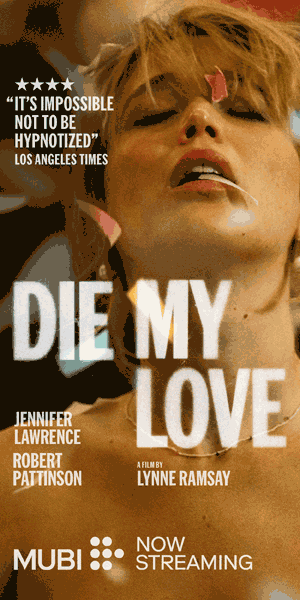I am no expert on jazz. If someone were to ask me if the theme to the classic television special A Charlie Brown Christmas is jazz, I would say yes — because it’s jaunty, and, for me, jauntiness is an essential characteristic of the genre. I know a few iconic tunes and albums — Dave Brubeck’s “Take Five,” Miles Davis’s Kind of Blue, a few Billie Holiday songs — but that’s about as far as I go. And although my nickname in high school was (briefly) Jazz, it never stuck. I suspect I scored too low on the jauntiness meter.
Nonetheless, I’ve seen enough live jazz and jam sessions to know something of its soul. The guy at the piano starts laying down a lazy, meandering theme. The guitarist listens for a second — yes, key of D — and starts noodling along. The drummer joins in, and pretty soon there’s a game of syncopated hacky sack going on, with everybody bumping and nudging the theme to keep it in the air.
These people are improvising.
Improvising is a vital life skill, which should be taught to students of all ages. And I mean improvising in the broadest sense: Letting go of excessive forethought and strategizing. Taking your cue from what’s happening around you instead. Improv theatre can teach this, as can freestyle rapping, debating, charades, and jamming in your best friend’s garage. All these pursuits present a call-and-response situation where you have little or no time to prepare. At their best, they require you to spontaneously create a unique form within a larger framework.
I once took an excellent workshop on how to use the techniques of improv theatre for science communication, taught by the radiology professor Jeff Dunn, from the University of Calgary. In one exercise, Dunn had us pair up and improvise a dialogue in front of the group. There was only one rule: every line had to begin with the last letter of the last word spoken by your partner. For example, if I said, “I often think of the rivers of music, and fireworks, I made in my first life,” you might say, “Eek, a mouse!” (which was actually spoken by one of the workshop participants, as she pointed realistically at the floor).
The value of this exercise, besides being a hoot, was twofold. First, it forced you to be fully present. You couldn’t be off somewhere in your head, trying to scare up a witty reply; you had to be alert for that last word and ready to act. Second, it required you to completely accept your partner’s gambit. This openness to the situation is, in fact, a pillar of improv and is expressed in the mantra “Yes, and . . . ”
I learned other things from that workshop — the value of stature (literally standing tall) and how your harsh inner critic can fall away completely when you’re forced to think fast. But maybe the most important lesson was how to brazen things out. Of course, the principle of “Yes, and . . . ” applies to mistakes, too. If a jazz guitarist plucks a blatantly wrong note, she can (if she’s quick) change the pitch by sliding her finger up or down the fretboard, so that the discordant tone becomes a melodic one. Then it’s no longer a mistake; it’s what those in the know call a blue note.
Yes, sometimes you just screw up royally, and all the jazz tropes in the world can’t save you. That’s when you really need your brazening skills. The practice of improvising creates a kind of mindful limberness that helps you hold on to your groove even after you bomb.
I’m not discounting the importance of the script, the song sheet, the instruction manual, the comfort of certainty that comes from a quick Google search. But we tend to rely overmuch on these things in stressful situations, like giving a speech or performing. There almost always comes a point when it’s a good idea to throw away the notes and wing it. Doing this again and again will create confidence and a repertoire of responses.
Doing it again and again — that’s the key. The great jazz musicians spend many years practising scales and spinning out various scenarios to hone their ability to respond. But then they find themselves, palms sweating, on a stage, with people and critics watching, and maybe somebody in the room they really want to impress. That’s when they must call on their inner resources and improvise.
We will all someday find ourselves on stage — figuratively or literally — without a script and be compelled to act. That can happen in small situations, as when you’re asked to say a few words at a gathering. But it can also happen in longer-term, higher-stakes scenarios — as when a novel coronavirus undercuts your usual way of doing business or living life and you have to find a workaround (or several).
Ralph Waldo Emerson once defined beauty as the readiness to flow, to be “metamorphosed into all other forms.” Such readiness — to react, to bend, to stretch, to recover after a stumble — is not just the preserve of great athletes and artists. We all need it to survive, especially during the straitened times of a pandemic. Overthinking and self-consciousness are the prime inhibitors of flow. If you improvise enough, you gradually overcome these impediments. A part of you becomes transmutable.
Maybe that’s the ultimate value of improvising: it allows you to change yourself, your perspective, your life. So try winging it, playing it by ear, riding the wave, going with the flow. And don’t worry if you lose the script — you can’t read it while playing hacky sack anyway.
Jamieson Findlay has published two novels, including The Summer of Permanent Wants.
Related Letters and Responses
Franklin James Latin Kamloops, British Columbia

